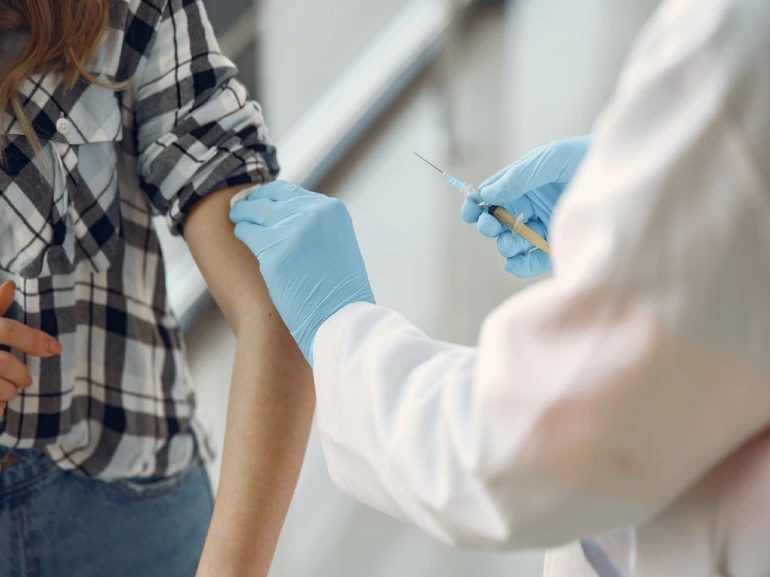The post-workout period is the most important time for muscle recovery. During this moment, muscles are more receptive to nutrients, and protein synthesis occurs more rapidly. It leads to faster muscle repair and greater gains in strength and size. Without proper nutrition during this critical window, it can take up to twice as long for your body to recover from exercise — which means you’ll be sore longer.
Recovery following intense physical activity has improved performance by reducing fatigue levels and increasing endurance significantly. It also reduces the delayed onset of muscle soreness that usually occurs twenty-four hours after a workout.
So, what are the essentials you’ll need to boost muscle recovery? Below is a list of the most important nutrients to take in immediately after exercise.
Protein
Muscle synthesis is significantly activated during post-workout periods. It has been shown that consuming protein within an hour after physical activity increases muscle restoration by fifty percent — which is what you want to kickstart recovery.
There are many types of protein sources available. Hydrolyzed whey is absorbed rapidly by the body and contains small peptides that are easily digested, making it the ideal choice post-workout. It’s also high in BCAAs (branched-chain amino acids) — leucine, isoleucine, and valine — which have been shown to stimulate the metabolic pathway that spurs muscle protein synthesis.
Protein concentrate preparations have high amino acid content and is absorbed by muscles within thirty minutes after ingestion, making it an ideal supplement for post-workout muscle recovery. Other great choices include casein and soy proteins.
Carbohydrates
For a protein to be metabolized effectively by muscle cells, it must be accompanied by carbohydrates. Carbohydrates are stored in muscles as glycogen and help fuel physical activities while also maintaining protein synthesis levels. Muscle glycogen is restored at a rate comparable to liver glycogen, but it takes slightly longer for the replenishment process to complete.
Choosing the correct type of carbohydrate is very important. Highly-branched cyclic dextrin (HBCD) has been shown to promote glycogen synthesis following exhaustive exercise. This patented nutrient is also high in BCAAs, making it an excellent source for muscle recovery. Another favorable option is maltodextrin — a carbohydrate that rapidly increases glycogen levels as quickly as the body can process it.
High-glycemic carbs such as dextrose and waxy maize deliver quick energy, which helps offset muscle protein breakdown (catabolism) for up to an hour after exercise.
Creatine
During intense physical activity, creatine levels are depleted within the muscles. Taking creatine after workouts will help your muscles recover faster and increase their energy stores.
Plus, creatine supplements can enhance muscle strength gains by as much as twelve percent during resistance training programs.
Caffeine
After a hard workout, caffeine may boost performance by increasing the body’s ability to burn fat. One study showed that ninety minutes after ingesting caffeine, participants could run further than those who didn’t consume the stimulant.
Caffeine is also a potent antioxidant that can help protect muscles from oxidative damage during and after workouts, resulting in a better overall condition of your body.
Beta-alanine
Beta-alanine is a nonessential amino acid produced naturally in the liver, kidneys, and pancreas. It helps support endurance levels by buffering lactic acid build-up within muscles — which means you’ll be able to train longer with greater intensity before experiencing muscle fatigue.
Beta-alanine can also help to increase muscle mass, which is great for boosting athletic performance and physical strength. It would be best if you took this supplement before workouts or at any time during the day when an extra boost is needed.
Water

Drinking water helps rehydrate the body by carrying nutrients to muscles. Water also flushes out waste products so that your muscles can perform optimally during exercise and recover properly afterward.
Fluid intake should be increased two to three hours before physical activity, with another eight ounces of fluid one hour before exercising. Additional fluids are needed during physical activity, with sixteen to twenty-four ounces required for every fifteen minutes of exercise.
It’s best to consume one glass of water after each protein shake or meal (for a total of six glasses). If exercisers are sweating profusely, they will need even more. It is important to stay hydrated when working out because it helps regulate body temperature.
Lastly, avoid energy drinks or other carbonated beverages because these can act as diuretics that cause extreme dehydration.
After reading about the essential post-workout supplements, it’s important to ensure you have everything you need on hand before your workout. This way, you can focus on giving it your all and take your activities to the next level.



